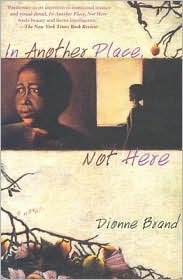If there is anything we need more of, it is trans* literature, or pretty much any books falling under that such umbrella term. But as the years go on we start to see more and more. Even so, books like Nevada or Luna, are still quite literally a rare treat, because I can actually count on my fingers and toes how many fiction books have trans* characters as a protagonist, or main character focus. And some of those were self-published.
Because of this rare treat experience, it didn’t matter what people said about it, I had to get around to reading Nevada by Imogen Binnie. It is not the first fiction book with a trans* main character, but it is the first to not only receive a bunch of hype around it. And better yet it tells the story of a trans-girl who actually dates other girls, which is actually a first, fictionally anyway.
But enough about the theory. Nevada focuses on the story of Maria and her search to find herself, sort of. And despite the fact that the opening of the novel goes through a real time situation of lesbian bed death, it doesn’t stay with clichés like that. In fact it works to break down a lot of the television identity that many trans* people get, including showing Maria struggling with that issue.
However, with the breakdown we do get a writing style that some people may hate, and others (lovers of fairy tales) will likely enjoy. The style is a lot like someone standing in the room with you and telling you a story verbally. I could honestly see Imogen actually talking like the writing in the book, which infused a bit of herself in the work. In normal cases of fiction, I’d say that’s not a good thing. But when you have a fictional work that could possibly be akin to what Jeanette Winterson did with Oranges Are Not the Only Fruit, by infusing a bit of personal experiences and fiction, you get something that is touching and personal to people.
Of course, with a story about a person finding themselves, you can imagine there isn’t exactly an ending to this. The ending in fact was the weakest, mostly because there wasn’t one. You’re reading through it and you turn the page to get to the next chapter and it’s done. I would normally say that it wasn’t finished at that point, but it is a literary novel, which seriously never have an ending. In fact I’m almost sure one of the possible definitions of literary novel is: Protagonist doesn’t overcome the challenge they were trying to face, or doesn’t find what they were searching for.
But that is a personal issue for me with literary novels. I like to have endings, especially when they aren’t happily ever after. Still, there are some gems in this book that is worth it for anyone. In fact, this book is definitely one of those books that makes you think about things you might not have. About life, relationships, gender, sexuality.
The biggest strength for this book though, were the characters. There wasn’t just Maria who had been on hormones for four years. There was Steph who has a pretty queer femme identity going on, and Kieran who goes with male pronouns but isn’t necessarily male or female, and later in the book we also get James who is one of those budding individuals who wants to do traditionally female things but doesn’t want to suffer the consequences, and a whole collection of other minor characters who are as diverse as a rainbow unicorn.
You really get a mix of different kinds of people, which made it feel so much like this could have been something that happened in your town. It was these diverse and real life characters that actually make the book enjoyable and something you could connect with and take away from it. That and some of the random humor, or my personal favorite were the monologues about how trans* people aren’t sex addicts, but are internet addicts. But isn’t everyone an internet addict these days? Who doesn’t like a space where you can be yourself. There’s somewhere for everyone to be themselves on the internet.
Overall, I do think this book is a worthwhile read for everyone. Those who are trans*, questioning queers, straight as a pen, doesn’t really matter, you’ll all find something you can connect with or relate to or even just get a new perspective on something that you probably didn’t really know about.
No matter what, it is one of those literary novels that gets you thinking. But hopefully, because of this book, I want to see more trans* and lesbian/queer trans-girl books!


